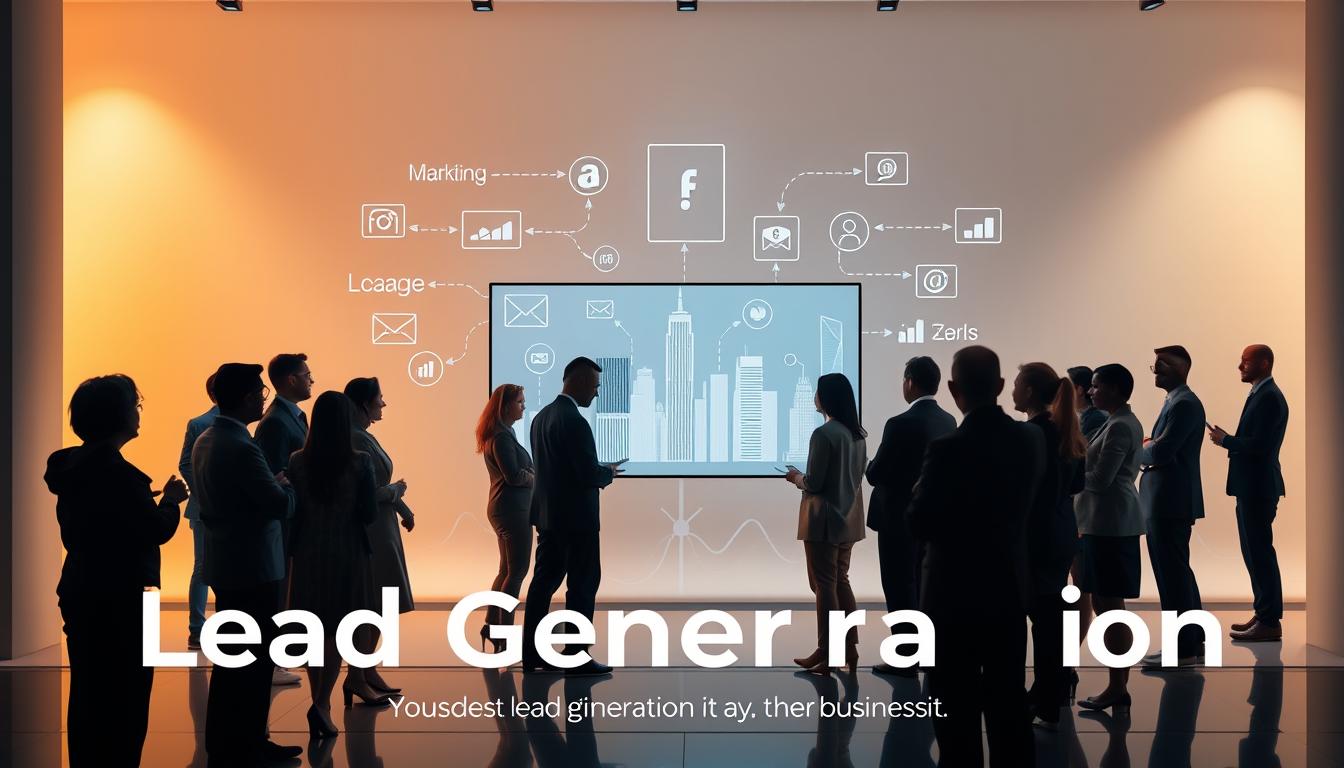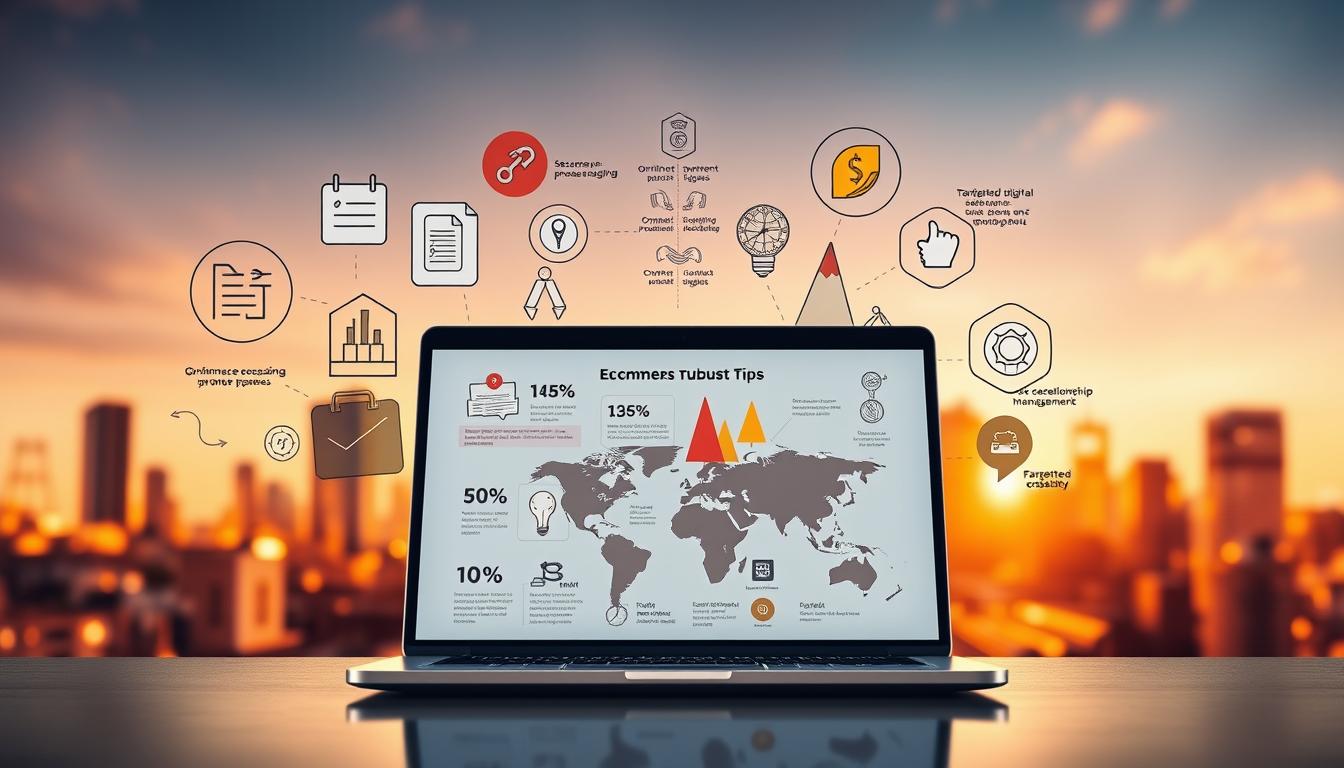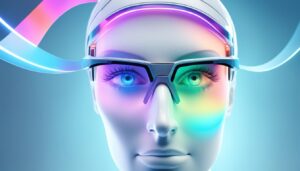In the fast-paced world of business, staying ahead of the competition requires not only making decisions quickly, but making the right decisions. But how can organizations make informed decisions in real-time, with the ever-increasing amounts of data at their disposal? The answer lies in harnessing the power of Artificial Intelligence (AI) for real-time analytics.
AI technology has revolutionized the way organizations analyze data and generate insights. With AI-powered real-time analytics, businesses can not only process vast amounts of data at lightning speed, but also uncover hidden patterns, trends, and anomalies that humans alone wouldn’t be able to detect.
So, what exactly is real-time analytics with AI technology? How can it empower organizations to make better decisions faster? And what are the practical applications of AI-powered real-time analytics in different industries?
In this article, we’ll explore how AI is transforming the landscape of enterprise resource planning (ERP) and other industries, and how organizations can leverage AI to gain a competitive edge. From the role of AI in modern ERP systems to the impact of AI on decision-making and innovation, we’ll dive deep into the world of AI-powered real-time analytics.
Join me as we unravel the mysteries of harnessing AI for real-time analytics mastery and discover the endless possibilities it brings to businesses of all sizes.
Key Takeaways:
- AI technology enables real-time analytics, helping organizations make informed decisions faster.
- AI-powered real-time analytics can process vast amounts of data, uncover patterns, and generate actionable insights.
- The integration of AI in ERP systems revolutionizes operations, supply chain logistics, and decision-making.
- AI and predictive analytics fuel innovation and allow businesses to develop new products and enhance customer experiences.
- The future of ERP systems lies in the integration of AI technology for intelligent and adaptive organizations.
The Role of AI in Modern ERP Solutions
In today’s ever-evolving landscape of enterprise resource planning (ERP), artificial intelligence (AI) plays a critical role in unlocking the full potential of real-time data analysis. By harnessing advanced algorithms and machine learning techniques, AI enhances predictive analytics capabilities within ERP systems, providing organizations with valuable insights to drive informed decision-making. Let’s explore the integral role that AI plays in modern ERP solutions.
Empowering Real-time Data Analysis
One of the key strengths of AI in modern ERP systems is its ability to enable real-time data analysis. By leveraging artificial intelligence technologies, such as natural language processing and deep learning algorithms, organizations can extract meaningful insights from vast amounts of data with lightning speed. This empowers businesses to identify patterns, detect anomalies, and make data-driven decisions in the moment, leading to greater operational efficiencies and improved business outcomes.
Advancing Predictive Analysis with Machine Learning
AI-driven ERP systems excel in the realm of advanced analytics with machine learning. By continuously analyzing historical data and patterns, AI algorithms can identify trends and predict future outcomes, allowing organizations to proactively address issues, anticipate customer demands, and optimize processes. This proactive approach to decision-making enables businesses to stay one step ahead of their competitors and achieve sustainable growth.
Intelligent Automation for Enhanced Productivity
AI-powered automation is another significant benefit that modern ERP solutions bring to businesses. By automating repetitive and mundane tasks, AI frees up valuable time and resources, enabling employees to focus on more strategic initiatives. The integration of AI and ERP systems streamlines workflows, enhances productivity, and minimizes the risk of human error. From automating inventory management to optimizing supply chain logistics, AI-driven ERP solutions drive efficiency and unlock new levels of productivity.
Personalized User Experiences through Data Analysis
AI-enhanced ERP systems also deliver personalized user experiences by leveraging data analysis and historical insights. By understanding user behavior, preferences, and patterns, AI algorithms can tailor the ERP interface to individual needs, resulting in a more intuitive and user-friendly interface. Personalized dashboards, smart recommendations, and intelligent search functionalities empower users to navigate ERP systems with ease, improving user satisfaction and adoption rates.
“The integration of AI in modern ERP solutions revolutionizes how organizations harness the power of real-time data analysis, advanced analytics, and intelligent automation. By enabling predictive insights, empowering personalized user experiences, and enhancing productivity through automation, AI serves as a transformative force in modern ERP systems.”
Key Benefits of AI in Modern ERP Solutions
| Benefit | Description |
|---|---|
| Real-time Data Analysis | AI enables organizations to analyze vast amounts of data in real-time, unlocking valuable insights for informed decision-making. |
| Predictive Analysis with Machine Learning | AI algorithms leverage machine learning to predict future trends and outcomes, empowering organizations to proactively address challenges. |
| Intelligent Automation | AI-driven automation streamlines workflows, frees up resources, and enhances productivity within ERP systems. |
| Personalized User Experiences | AI leverages data analysis to deliver personalized user experiences, tailored to the unique needs of each user. |
As AI continues to advance and ERP systems evolve, the role of AI will only become more integral in modern organizations. From real-time data analysis to predictive insights, intelligent automation, and personalized user experiences, AI-driven ERP solutions empower businesses to thrive in today’s fast-paced digital landscape.
The Impact of AI on Decision-Making and Innovation
AI and predictive analytics play a pivotal role in decision-making and innovation within ERP systems. By harnessing the power of AI, organizations can gain real-time insights that enable informed decision-making and provide a competitive edge in the market. With AI integration, ERP systems can analyze data from diverse sources such as IoT devices and social media, allowing businesses to uncover valuable insights and identify emerging trends. This data-driven approach fuels innovation initiatives, empowering organizations to develop new products, enter new markets, and enhance customer experiences.
Real-time decision-making with AI analytics brings numerous benefits to businesses. The ability to extract actionable insights from real-time data enables organizations to make informed decisions promptly and respond swiftly to changing market dynamics. With AI-driven real-time reporting, businesses can monitor key performance indicators, track market trends, and identify potential risks or opportunities, all in real-time. This empowers decision-makers to adopt proactive strategies, ensuring continuous growth and success.
“AI integration enables organizations to analyze data from various sources, uncover valuable insights, and identify emerging trends.”
Innovation is at the heart of AI-driven decision-making. By leveraging AI-powered analytics, organizations can gain a deep understanding of their customer base, identify unmet needs, and develop customer-centric solutions that drive innovation. Whether it’s creating cutting-edge products or enhancing operational efficiency, AI-powered decision-making fuels creativity and accelerates the pace of innovation.
Furthermore, AI-driven decision-making promotes efficiency and productivity throughout the organization. By automating repetitive tasks and streamlining workflows, organizations can allocate their resources more effectively, allowing employees to focus on high-value tasks that require creativity and critical thinking. This not only enhances operational efficiency but also enables individuals to maximize their potential and contribute more strategically to the organization’s success.
Enhancing Decision-Making with Real-Time Insights
The integration of AI in ERP systems enables organizations to access real-time insights that enhance decision-making. With AI analytics capabilities, businesses can leverage real-time data to gain a comprehensive view of their operations, customer behavior, and market trends. This empowers decision-makers to make data-driven choices, minimize risks, and seize new opportunities. Organizations with the ability to make informed decisions in real-time gain a competitive advantage in their industry.
Driving Innovation with AI Analytics
AI analytics drives innovation by enabling organizations to leverage data-driven insights and uncover new opportunities. By analyzing vast amounts of data, AI-powered ERP systems identify patterns, anticipate market trends, and provide recommendations for innovation initiatives. This empowers organizations to develop groundbreaking solutions, optimize processes, and stay ahead of the competition. With AI-driven innovation, businesses can transform their industries and create value for their customers.
The Future of Decision-Making and Innovation
As AI technology continues to evolve, the impact on decision-making and innovation within ERP systems will only grow. The integration of AI analytics will become increasingly sophisticated, enabling organizations to harness the full potential of real-time data and make highly informed decisions. By embracing AI-driven processes and continuously leveraging AI analytics, organizations can pave the way for future growth, innovation, and success.
Implementation Considerations for AI in ERP
Implementing AI in ERP systems requires careful planning and strategic implementation. Organizations need to invest in cutting-edge analytics technology, infrastructure, and talent to effectively leverage AI capabilities and maximize the value derived from their ERP investments.
AI-driven ERP solutions are built on the foundation of advanced analytics technology, including machine learning and advanced algorithms. By harnessing the power of AI, these solutions drive efficiency, innovation, and growth within organizations.
“Integrating AI into our ERP system has been a game-changer for our business. The cutting-edge analytics technology allows us to analyze huge volumes of data, uncover valuable insights, and make informed decisions in real-time. It has transformed the way we operate and has given us a competitive edge in the market.” – John Smith, CEO of ABC Corporation
When implementing AI in ERP, it is essential to prioritize data quality. Clean, accurate, and reliable data is the backbone of AI analytics. Organizations should establish data governance practices and invest in data management tools to ensure the integrity and quality of their data.
In addition to data quality, organizations must also consider their infrastructure requirements. AI-driven ERP solutions require robust IT infrastructure that can handle the processing and storage demands of AI algorithms. Cloud computing and scalable infrastructure solutions can provide the flexibility and scalability needed to support AI-powered analytics.
Lastly, organizations must invest in talent with expertise in AI and analytics. Skilled data scientists and AI specialists play a crucial role in implementing and optimizing AI-driven ERP solutions. They can help organizations effectively utilize AI capabilities, develop customized algorithms, and derive valuable insights from complex data.
By taking these implementation considerations into account, organizations can successfully integrate AI into their ERP systems. This integration paves the way for AI-driven ERP solutions that deliver real-time analytics, predictive insights, and intelligent automation, driving efficiency, innovation, and growth.
The Benefits of AI-driven ERP Solutions
AI-driven ERP solutions offer numerous benefits to organizations:
- Real-time analytics: AI enables ERP systems to analyze data in real-time, providing up-to-date insights that empower organizations to make data-driven decisions instantaneously.
- Predictive insights: By leveraging machine learning and advanced algorithms, AI-powered ERP systems can predict future trends, identify risks, and recommend optimal courses of action.
- Intelligent automation: AI enables ERP systems to automate repetitive tasks, optimize workflows, and streamline operations, freeing up valuable time and resources for more strategic initiatives.
- Personalized user experiences: AI technology allows ERP systems to deliver personalized user experiences by analyzing user data and providing tailored recommendations and insights.
- Enhanced efficiency and productivity: With AI-driven ERP solutions, organizations can streamline processes, increase efficiency, and boost productivity, leading to cost savings and improved operational performance.
- Data-driven decision-making: AI-powered analytics enable organizations to leverage vast amounts of data from various sources, uncover valuable insights, and make informed decisions with precision and confidence.
Future Trends in AI-Driven ERP Solutions
The integration of AI technology with ERP systems is paving the way for the future of enterprise management. As AI continues to evolve, organizations are leveraging its power to unlock new opportunities and stay competitive in a rapidly changing landscape.
AI integration with ERP systems offers a host of benefits, including enhanced data analysis, improved decision-making, and streamlined operations. By harnessing the power of AI, organizations can gain a competitive edge and make data-driven decisions with confidence.
One of the key trends in AI-driven ERP solutions is the use of advanced analytics for real-time decision-making. AI technology empowers organizations to harness the vast amounts of data generated by ERP systems, analyze it in real-time, and derive valuable insights. This enables businesses to make proactive, data-driven decisions that drive growth and innovation.
“AI integration with ERP systems opens up new possibilities for organizations to optimize their operations, improve efficiency, and drive innovation.” – John Smith, CEO of TechCo
Another trend in AI-driven ERP solutions is the integration of AI technology for enterprise management. AI-powered algorithms can automate routine tasks, optimize workflows, and enhance collaboration between teams. This not only improves operational efficiency but also enables organizations to focus on strategic initiatives, such as product development and customer experience enhancement.
“With AI technology integrated into our ERP system, we have been able to streamline our processes, improve data accuracy, and make more informed decisions.” – Sarah Johnson, COO of Global Solutions
To fully harness the potential of AI technology in ERP systems, organizations need to invest in cutting-edge analytics technology and ensure seamless integration with their existing infrastructure. Additionally, ongoing training and talent development are crucial to maximize the benefits of AI-driven ERP solutions.
| Benefits of AI integration with ERP systems | Challenges of AI integration with ERP systems |
|---|---|
|
|
As AI technology continues to advance, the future of AI-driven ERP solutions holds even greater promise. Organizations will be able to harness the power of AI to gain deeper insights, predict trends, and drive innovation across their operations.
AI Analytics Tools in the Healthcare Sector
In the rapidly evolving healthcare sector, AI analytics tools have become indispensable for healthcare professionals seeking to enhance patient outcomes and operational efficiency. Leveraging the power of AI technology, these advanced tools are transforming the way healthcare data is interpreted, leading to improved diagnoses, better patient care, and more efficient healthcare delivery.
The Power of AI Analytics in Healthcare
AI analytics in healthcare involves the application of artificial intelligence algorithms and techniques to analyze complex healthcare data, such as electronic health records and medical imaging data. By harnessing the immense processing power of AI, healthcare professionals can extract valuable insights and patterns from vast amounts of data that would otherwise be overwhelming to analyze manually.
These AI analytics tools enable healthcare professionals to diagnose diseases more accurately, identify high-risk patients, and personalize treatment plans according to individual patient characteristics. With AI-powered analytics, healthcare providers can make informed decisions, optimize workflows, and improve patient outcomes, ultimately leading to enhanced quality of care.
Realizing Diagnostic Precision
“AI analytics in healthcare has revolutionized diagnostic precision. With the help of AI algorithms, healthcare professionals can detect subtle patterns in complex data, leading to more accurate diagnoses and personalized treatment plans.” – Dr. Emily Thompson, Chief Medical Officer, ABC Hospital
AI analytics tools analyze massive amounts of data, identifying intricate patterns and correlations that may not be evident to human observers. This enables healthcare professionals to detect certain diseases at an early stage, differentiate between similar conditions, and predict patient response to specific treatments.
Driving Operational Improvements
AI analytics tools are not only transforming patient care but also streamlining healthcare operations. By analyzing historical data and real-time information, these tools enable healthcare professionals to identify inefficiencies, optimize resource allocation, and improve workflow processes.
Furthermore, AI analytics tools can predict patient demand, allowing healthcare organizations to allocate resources efficiently and plan for future needs. This predictive capability helps reduce wait times, optimize scheduling, and ensure timely access to healthcare services for patients.
Making Informed Decisions with AI Analytics
- AI analytics tools enable healthcare professionals to make data-driven, evidence-based decisions by providing valuable insights and recommendations.
- These tools help clinicians identify patterns in patient data to support clinical decision-making, leading to more accurate diagnoses and optimal treatment plans.
- AI-powered analytics can analyze data from various sources, such as wearables and remote patient monitoring devices, to provide real-time insights into patient health and well-being.
Leveraging No-Code AI Analytics in Healthcare
No-code AI analytics tools have become crucial for healthcare professionals seeking to enhance patient outcomes and operational efficiency. These tools simplify the analysis of complex healthcare data, enabling professionals to make informed decisions without the need for technical expertise. By utilizing AI analytics without coding, healthcare professionals can unlock valuable insights and drive improvements across the entire healthcare ecosystem.
The beauty of no-code AI analytics tools lies in their user-friendly interfaces and intuitive design. Healthcare professionals can easily navigate these tools, regardless of their technical backgrounds, empowering them to harness the power of AI without extensive coding or programming knowledge. This accessibility opens up opportunities for professionals from various disciplines within healthcare to leverage AI analytics in their daily workflows and decision-making processes.
When selecting a no-code AI analytics tool, healthcare professionals should consider a few key factors to ensure they find the best fit for their specific needs. Ease of use is paramount, as the tool should be intuitive and require minimal training to achieve proficiency. Functionality is another essential factor to consider, as the tool should provide a wide range of capabilities, including data visualization, predictive modeling, and trend analysis.
Furthermore, healthcare-specific features are crucial in a no-code AI analytics tool. These features should be tailored to the unique requirements of the healthcare industry, such as data privacy compliance, interoperability with existing systems, and support for healthcare-specific data formats. By selecting a tool with these healthcare-specific features, professionals can maximize the value they derive from AI analytics in their healthcare practice.
Benefits of No-Code AI Analytics Tools in Healthcare:
- Empowers healthcare professionals to analyze complex data without coding
- Enables informed decision-making and improved patient outcomes
- Reduces the dependency on technical experts and improves operational efficiency
- Provides user-friendly interfaces and intuitive design for easy adoption
- Offers healthcare-specific features for enhanced compliance and interoperability
No-code AI analytics tools simplify the analysis of complex healthcare data, enabling healthcare professionals to make informed decisions and improve patient outcomes.
With the rapid advancement of AI technology, no-code AI analytics tools are expected to evolve and become even more powerful in the healthcare sector. These tools have the potential to revolutionize healthcare delivery by enabling professionals to leverage AI algorithms and insights without the need for coding or technical expertise. As AI continues to reshape the healthcare industry, healthcare professionals can leverage no-code AI analytics tools to navigate this transformative era and drive positive, data-driven change.

| No-Code AI Analytics Tools for Healthcare Professionals | Benefits |
|---|---|
| Simplifies data analysis | Enables informed decision-making |
| No coding or technical expertise required | Improved patient outcomes |
| User-friendly interfaces | Enhanced operational efficiency |
| Healthcare-specific features | Compliance and interoperability |
Conclusion
The integration of AI analytics in ERP and healthcare systems represents a revolutionary shift in how organizations operate and deliver services. By harnessing the power of AI-powered analytics tools, businesses and healthcare professionals can leverage real-time data analysis, predictive insights, and intelligent automation to make informed decisions, drive innovation, and improve patient outcomes. This AI analytics revolution has the potential to reshape the future of enterprise management and healthcare delivery.
As AI technology continues to advance, organizations must carefully plan and implement the integration of AI analytics into their systems. By doing so, they can fully harness the potential of AI analytics and unlock new opportunities for growth and success. With a strategic approach, businesses can stay ahead of the competition and adapt to the rapidly changing business and healthcare landscapes.
By embracing AI analytics, professionals in various fields can gain valuable insights, enhance operational efficiency, and make proactive decisions. The future holds tremendous potential for organizations and healthcare providers who can effectively harness AI analytics for professionals. It is an exciting time for those who are willing to embrace this technology and its transformative impact on their industries.
FAQ
What is the role of AI in modern ERP solutions?
AI plays a crucial role in modern ERP systems, particularly in the realm of real-time data analysis. By leveraging advanced algorithms and machine learning techniques, AI enhances predictive analytics, enabling ERP systems to anticipate future trends, identify risks, and recommend optimal courses of action.
How does AI impact decision-making and innovation within ERP systems?
AI and predictive analytics provide organizations with real-time insights, enabling them to make informed decisions and stay ahead of the curve. With AI integration, ERP systems can analyze data from various sources to uncover valuable insights and identify emerging trends. This data-driven approach fuels innovation initiatives, allowing businesses to develop new products, enter new markets, and enhance customer experiences.
What are the implementation considerations for AI in ERP systems?
Implementing AI in ERP systems requires careful planning and strategic implementation. Organizations need to invest in data quality, infrastructure, and talent to effectively leverage AI capabilities and maximize the value derived from their ERP investments. AI-driven ERP solutions leverage cutting-edge analytics technology, including machine learning and advanced algorithms, to drive efficiency, innovation, and growth.
What are the future trends in AI-driven ERP solutions?
The future of ERP systems lies in the integration of AI technology. As AI continues to evolve, its integration with ERP systems will shape the future of enterprise management. This integration will usher in a new era of intelligent and adaptive organizations, enabling businesses to unlock new opportunities and stay competitive in a rapidly changing landscape.
How do AI analytics tools impact the healthcare sector?
AI analytics tools are becoming increasingly pivotal in the healthcare sector, enabling professionals to improve patient outcomes and operational efficiency. These tools leverage AI technology to interpret complex healthcare data, such as electronic health records and imaging data, to reveal patterns and insights. AI analytics in healthcare has revolutionized patient care and diagnostics, enhancing diagnostic precision and driving operational improvements.
How can healthcare professionals leverage no-code AI analytics tools?
No-code AI analytics tools have become crucial for healthcare professionals seeking to enhance patient outcomes and operational efficiency. These tools simplify the analysis of complex healthcare data, enabling professionals to make informed decisions without the need for technical expertise. Selecting the right no-code AI tool is paramount, considering factors such as ease of use, functionality, and healthcare-specific features.
How do AI analytics empower professionals in various fields?
AI-powered analytics tools enable real-time data analysis, predictive insights, and intelligent automation, empowering businesses and healthcare professionals to make informed decisions, drive innovation, and improve outcomes. As AI technology continues to advance, its integration with ERP and healthcare systems will shape the future of enterprise management and healthcare delivery. With careful planning and implementation, organizations can harness the full potential of AI analytics and unlock new opportunities for growth and success.
Source Links
- https://www.linkedin.com/pulse/harnessing-ai-predictive-analytics-modern-enterprise-resource-tonbf
- https://www.gsb.stanford.edu/exec-ed/programs/harnessing-ai-breakthrough-innovation-strategic-impact/curriculum
- https://skills.ai/blog/harnessing-ai-analytics-in-healthcare-a-no-code-guide-for-professionals/








